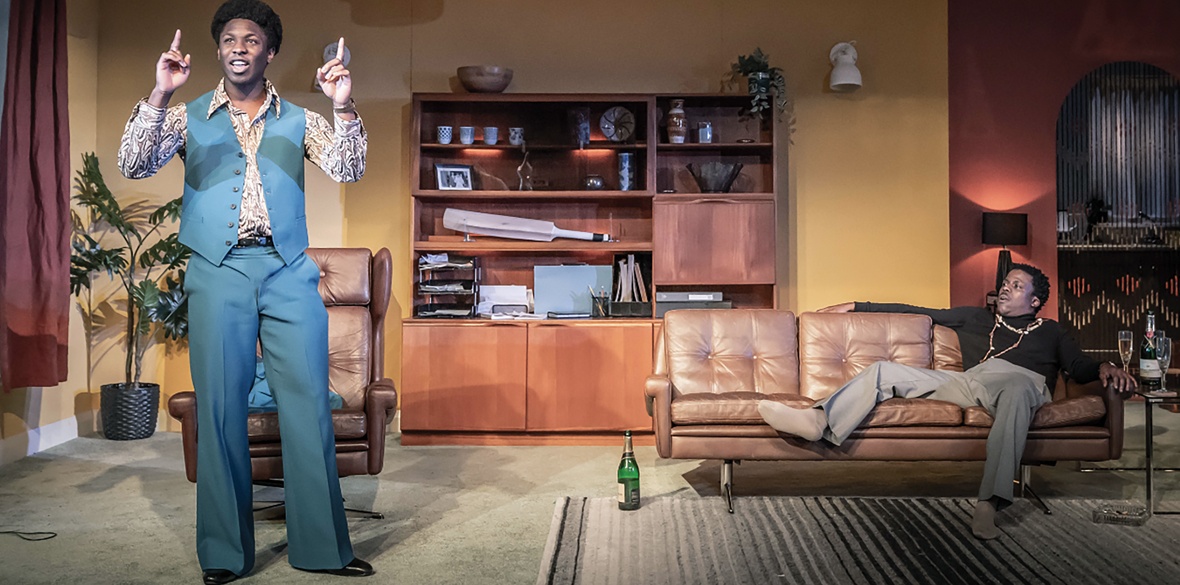This is the last article you can read this month
You can read more article this month
You can read more articles this month
Sorry your limit is up for this month
Reset on:
Please help support the Morning Star by subscribing here
The Death of a Black Man
Hampstead Theatre, London
ASIDE from the mandatory mask-wearing, the temperature check and the unusual amount of elbow-room resulting from the socially distanced seating, Hampstead Theatre didn’t have the feel of a stage that had been dark for 18 months. It felt good to be back in a lively auditorium.
Alfred Fagon’s 1975 play The Death of a Black Man was due to return to the theatre where it was first performed last summer while the world had erupted in righteous revolt following the lynching of George Floyd in the US.
Covid, of course, intervened but as theatres begin to reopen, this work by Fagon, one of the pioneering black actors and writers of the 1970s, is finally getting a timely revival.
In it, Shakie (Nickcolia King-N’da), a forerunner to Del Boy, is making a fortune selling imitation “African” furniture to unwitting buyers on the King’s Road.
It transpires that his chairs are made by underpaid Nigerian immigrants in Yorkshire who eventually find themselves on the wrong side of Enoch Powell’s “immigration army.”
When his “baby mother,” the cursed temptress Jackie (Natalie Simpson, outstanding) arrives with a few home truths and oddly skated-over allegations of “rape,” the touch-paper is lit.
In a sign of what is to come in a play of stark contrasts, every visionary idea and argument is soon matched by an inflammatory, attention-grabbing statement or insult.
The frantic energy continues to escalate when Shakie’s bullish best friend Stumpie (Toyin Omari-Kinch) turns up.
He has the idea of putting “African drums on television with African faces” and needs some of Shakie’s cash to make it happen.
The ensuing discussion on the commodification of black identity, music and death is the high point of the evening.
In fact, the show is loosely based on the life of undervalued Jamaican-British jazz saxophonist Joe Harriot, who died virtually destitute and it had its debut shortly after the original Wailers broke up, with major label “politricks” in the background, something Fagon is surely commenting on here.
Dawn Walton’s direction occasionally feels a little static but she hasn’t much to work with, just three characters, three walls and a lot of repetitious dialogue.
While Fagon’s fireball of ideas still has the ability to shock 46 years later, too often it relies upon crude tropes in order to do so and eventually flickers and fades.
Runs until July 10, box office: hampsteadtheatre.com.









